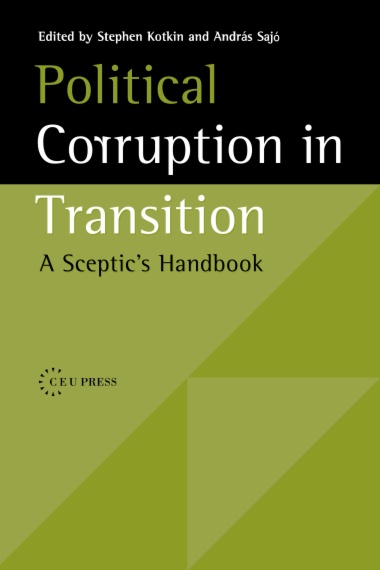Based on two international conferences at Princeton University and the Central European University, this is a handy guide to the problem of corruption in transition countries, with an important comparative content. Political Corruption in Transition is distinguished from similar publications by at least two features: by the quality of the carefully selected and edited essays ans by its original treatment. Instead of the usual preaching and excommunications, this Skeptic`s Handbook represents down-to-earth realism.
Combines general issues with case studies and original research. The geographic coverage is wide, though it is ideas rather than a geography that drive the volume`s organization.
- Cover
- Front matter
- Table of Contens
- Contributors
- List of Figures
- List of Tables
- Preface
- INTRODUCTION
- Clientelism and Extortion: Corruption in Transition
- PART I: Understanding and Misunderstanding Corruption
- Corruption: An Analytical Map
- Political Corruption, Democratization, and Reform
- Dilemmas of Corruption Control
- The Bad, the Worse and the Worst: Guesstimating the Level of Corruption
- The Impact of Corruption on Economic Development: Applying “Third World” Insights to the Former Second World
- PART II: Corruption as Politics
- From Political Clientelism to Outright Corruption—The Rise of the Scandal Industry
- Clientelism and Corruption in South Korea
- Russia’s Distorted Anticorruption Campaigns
- Kompromat and Corruption in Russia
- PART III: Case Studies and Effects
- Games of Corruption: East Central Europe, 1945–1999
- Corruption in Czech Privatization: The Dangers of“Neo-Liberal” Privatization
- Corruption and Administrative Barriers for Russian Business
- The Impact of Corruption on Legitimacy of Authorityin New Democracies
- Structural Corruption of Party-Funding Models: Governmental Favoritism in Bulgaria and Russia
- Post-Soviet Corruption Outburst in Post-Conflict Tajikistan
- AFTERWORD
- Liberalism, Geopolitics, Social Justice
- Notes
- Select Bibliography
- Index
- back cover

